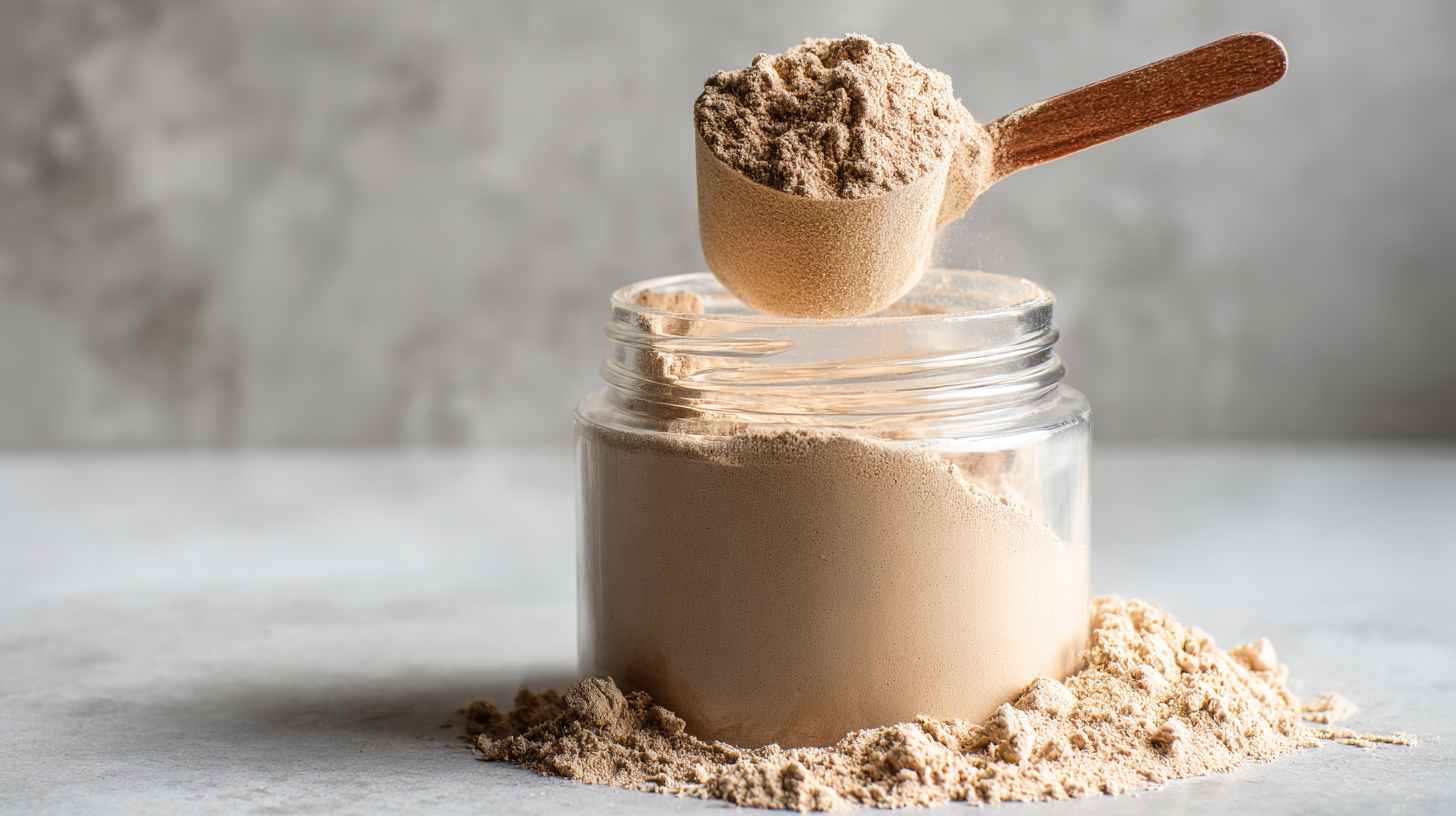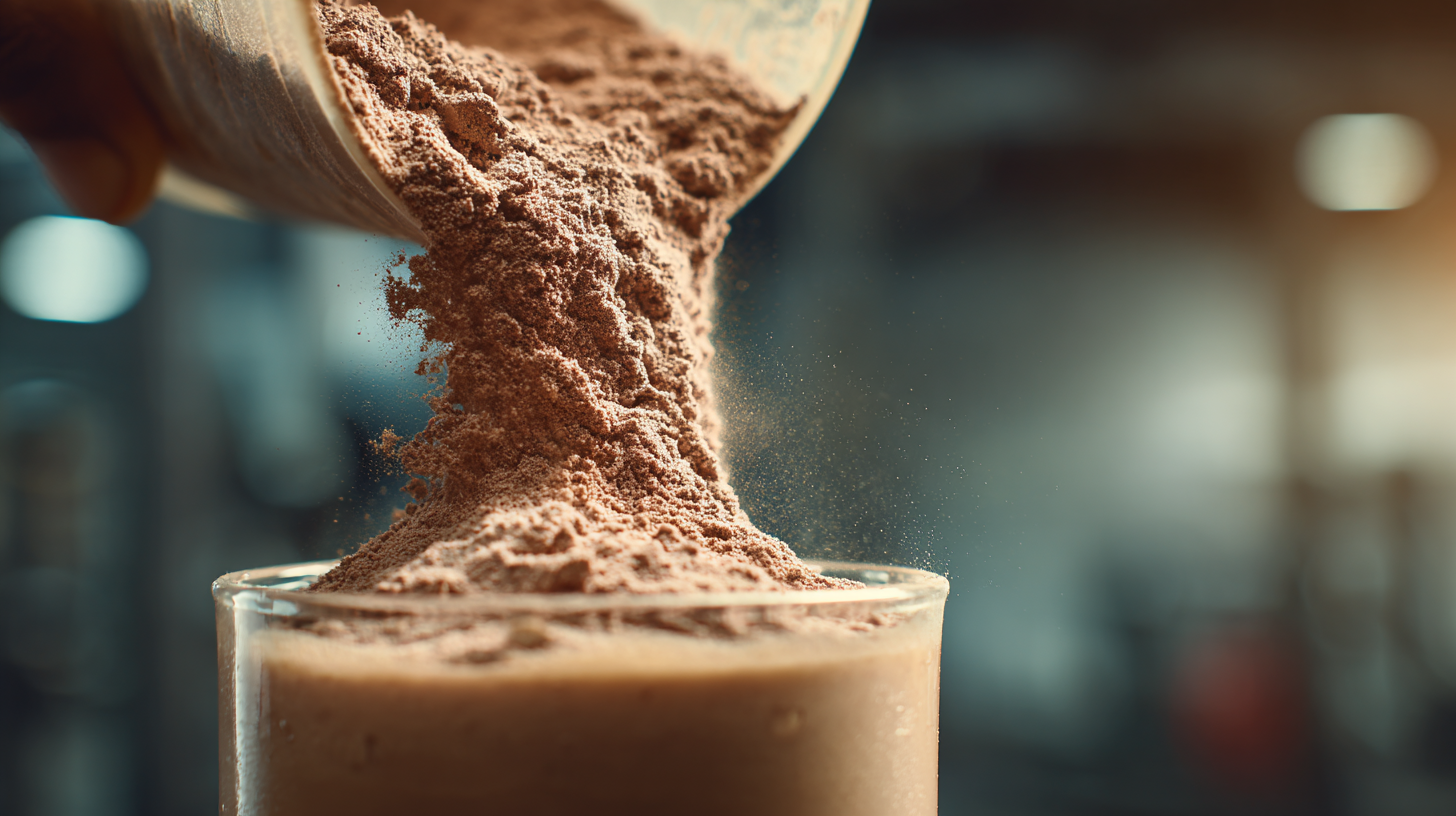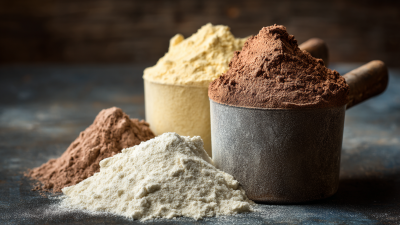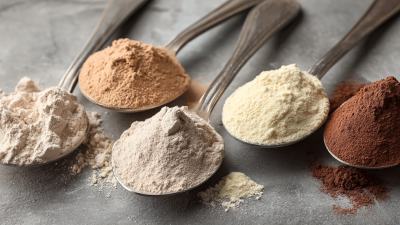In the pursuit of fitness and optimal health, the incorporation of Weight Protein Powder has emerged as a transformative strategy for those seeking to enhance their exercise results and nutritional intake. According to a report by Grand View Research, the global protein powder market is projected to reach USD 27.6 billion by 2027, primarily driven by the increasing popularity of protein supplements among fitness enthusiasts and athletes.

Weight Protein Powder not only facilitates muscle recovery and growth but also aids in weight management by promoting satiety and reducing hunger cravings. A study published in the American Journal of Clinical Nutrition found that protein intake significantly boosts metabolism, with participants experiencing a 15% increase in energy expenditure. As more individuals recognize the pivotal role of high-quality protein in their diets, Weight Protein Powder stands out as a convenient and efficient solution to help unlock the benefits of a fitter, healthier lifestyle.
Protein powder has become a staple in the fitness community, primarily due to its crucial role in muscle recovery and growth. When we engage in intense workouts, our muscle fibers endure micro-tears. Consuming protein, particularly in the form of protein powder, helps repair these fibers, allowing them to rebuild stronger. This process is essential not just for muscle building but also for enhancing overall fitness performance.
Additionally, protein powders can be incredibly convenient, making it easier for individuals to meet their dietary protein requirements. Whether it's whey, casein, or plant-based options, these powders provide a quick and efficient way to get the necessary nutrients post-workout. This timely intake is vital; studies indicate that consuming protein within a specific window after exercise maximizes muscle protein synthesis. By integrating protein powder into a post-workout routine, individuals can effectively support their body’s recovery process and set the stage for optimal growth and progress in their fitness journey.
| Benefit | Description | Recommended Usage |
|---|---|---|
| Muscle Recovery | Helps repair muscle fibers after intense exercise, reducing recovery time. | Consume within 30 minutes post-workout. |
| Muscle Growth | Provides essential amino acids to stimulate protein synthesis and build lean muscle. | Take 1-2 servings daily, depending on protein needs. |
| Convenient Protein Source | Easy to digest and can be mixed with various liquids or foods, making it a quick protein option. | Use as a meal replacement or snack substitute. |
| Weight Management | Promotes a feeling of fullness, which can assist in controlling cravings and reducing overall calorie intake. | Incorporate into meals or beverages to enhance satiety. |
| Enhanced Performance | Supports endurance and strength during workouts, leading to better performance outcomes. | Take pre- or post-workout to maximize performance benefits. |
When choosing a protein powder, it’s essential to align your selection with your specific fitness goals. For those aiming for muscle gain, whey protein is often the go-to option. Derived from milk, it contains a complete amino acid profile and is rapidly absorbed, making it ideal for post-workout recovery. Its protein-dense nature helps in muscle protein synthesis, providing the necessary building blocks for growth and repair.
On the other hand, if weight loss is your objective, plant-based protein powders, such as pea or brown rice protein, can be beneficial. These powders are typically lower in calories and fat, making them suitable for calorie-controlled diets. Additionally, they provide essential nutrients and can support muscle maintenance while promoting fat loss. For individuals with lactose intolerance or those seeking a vegan alternative, these options present excellent choices without compromising nutrition. By understanding the different types of protein powders and how they can cater to your fitness aspirations, you can make an informed decision that enhances your journey.

Incorporating protein powder into your diet can significantly enhance your fitness journey, especially for those looking to build muscle or lose weight. According to reports, the U.S. protein supplement market is projected to reach a staggering $9.88 billion in 2024, and is expected to grow to $10.88 billion in 2025, ultimately surging to $22.58 billion by 2032. This rapid growth underscores the increasing popularity of protein supplements among fitness enthusiasts.
One key distinction between protein powder and whole food protein is the convenience and absorption rate. While whole foods provide essential nutrients and fiber, protein powders offer an efficient way to increase protein intake, particularly for individuals with busy lifestyles. For optimal results, it is recommended to consume protein powder shortly after workouts to aid muscle recovery. Aim for a balance; integrating protein powder with a varied diet rich in whole foods can provide a well-rounded nutritional profile, making it easier to meet daily protein requirements without excessive calorie intake.

When it comes to protein supplements, several myths persist that can cloud our understanding. One common misconception is that only animal products provide sufficient protein. In fact, many plant-based sources, including legumes, nuts, and even certain vegetables, offer a viable protein boost. This highlights the importance of diversifying your protein sources beyond just traditional shakes.
Another myth surrounds the timing and dosage of protein intake. Some believe that consuming protein immediately after a workout is the only way to build muscle effectively. However, current research suggests that total daily protein intake matters more than the timing of each dose. To optimize muscle synthesis, aim to spread your protein consumption throughout the day rather than focusing solely on post-workout nutrition.
**Tips:** Consider incorporating a variety of protein sources into your meals for a balanced diet. Mixing plant-based proteins with traditional options can enhance your nutrient intake. Moreover, track your total daily protein to ensure you're meeting your fitness goals, rather than fixating on specific consumption times.
Tracking your progress while using protein powder can significantly enhance your fitness journey. First, set clear goals for your strength and endurance targets, as well as your muscle mass objectives. By establishing benchmarks, you can measure your performance more effectively. Keep a log of your workouts alongside your protein intake, noting how your body responds after each session. This data will help you identify patterns, such as improvements in recovery time or increased lifting capacity, thanks to the addition of protein powder.
In addition to physical metrics, consider tracking body composition changes. Regularly measuring your weight, muscle mass, and body fat percentage can provide a comprehensive view of how protein powder affects your physique. Many users find that their bodies become more toned and defined over time, particularly when paired with a consistent workout regimen. By regularly assessing these indicators, you can adjust your protein intake and exercise strategy to maximize results, ultimately transforming your fitness journey in a meaningful way.






